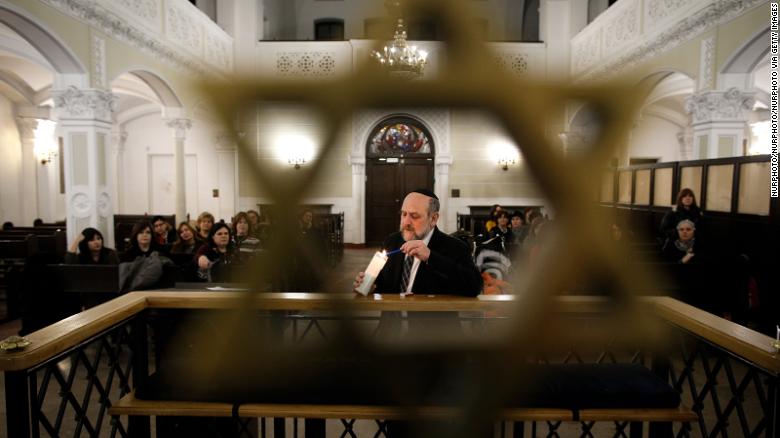In 1968, Poland’s communist government forced Jews to leave. Today, the country embraces refugees.

Now, it is once again a house of worship, led by the chief rabbi of Poland, Michael Schudrich.He says it is unclear how many Jews are in Poland today. Before World War II, Poland had a “In March of 1968, there were rumblings in society against the government,” Schudrich said.Many in Poland rejected the communist party’s tightening grip over the country.”The government decided that the best way to deal with this social tension — the social opposition to the government — was by claiming … it’s all the Jews doing it,” Schudrich said.Scapegoating the Jews was a tried-and-true tactic used by leaders for millennia, and it worked just as the communists, engaged in an internal power struggle, had hoped it would. For this story, Dana Bash’s team spoke with members of her extended family in Warsaw and New York.1968 protestsIn the late 1960s, protests raged not just on American college campuses but at Polish universities as well. While American students marched in protest of the Vietnam War, students in Warsaw demonstrated against censorship in their country. And the communist government did not like it.After Israel’s victory over its Arab neighbors in 1967’s Six-Day War, Poland’s communist party leader Władysław Gomułka spoke out against a “fifth column” of Polish Jews, in what became known as the “Zionist” speech — evoking a wave of anti-Semitism.The incendiary speech plays on a loop on a bank of televisions in an exhibit at the POLIN Museum of the History of Polish Jews in Warsaw. Joanna Fikus, who leads the exhibitions department at the museum, explained its significance to CNN.”After this speech, this huge wave of anti-Semitic campaign began,” she said, gesturing at the largest screen overhead.Gomułka spoke about the threats to Poland, referencing “traitors.””He never mentioned the word ‘Jew,'” Fikus explained. “He didn’t have to.” “You can imagine that people in their 40s or 50s who survived (the) Holocaust and remembered how it began,” she said. “They felt (goose bumps), and they understood that they don’t know how it might end, but they have been through something like this again.” The communist government went after “elites” on college campuses as well as so-called Zionists.The plight of the refugee. Where do we go?George and Anna Gelber made their way to New York in 1969 to stay with relatives and slowly build a new life. Alex’s sister, Renata Greenspan, had already finished medical school in Poland and also went to the United States. She joined the US Army, rose in rank to colonel and shattered glass ceilings as the first female director at the Armed Forces Institute of Pathology.Alex finished medical school in Italy and then joined his parents in New York, which is where he met my aunt Dr. Linda Wolf in 1981, while both were working at Bellevue Hospital.Alex’s story has a happy ending, but the memory of being forced from his home, his country, his life, still lingers. “This passage abroad,” he recalled, “leaves the mark that doesn’t leave you.”Since Russian President Vladimir Putin invaded Ukraine in February, Poland has welcomed nearly 3 million Ukrainian refugees over its border. It’s a remarkable display of compassion and humanity for a country that expelled people like my uncle less than 60 years ago. Like the tens of thousands who were forced to leave Poland in 1968, Alex views today’s conflict through the lens of a former refugee. “It’s uncannily similar,” he said of the refugee crisis in Ukraine. “It’s the same thing. It’s this hate and (intolerance). And they drive people out, and people are desperate, and they don’t know when will they come back?” “No person who underwent that experience would be very much against immigration,” he continued, “because that’s how it should be done. When people are persecuted, they should be accepted in other places, in spite of all the things that can otherwise happen.”As Alex watches this new wave of refugees find shelter in a country that could not offer him the same, he is hopeful this is a lesson learned for Poland. “They’re ordinary people who opened their homes, and they let people move in — so this is heartening. And that is, I guess, a source for hope.”





